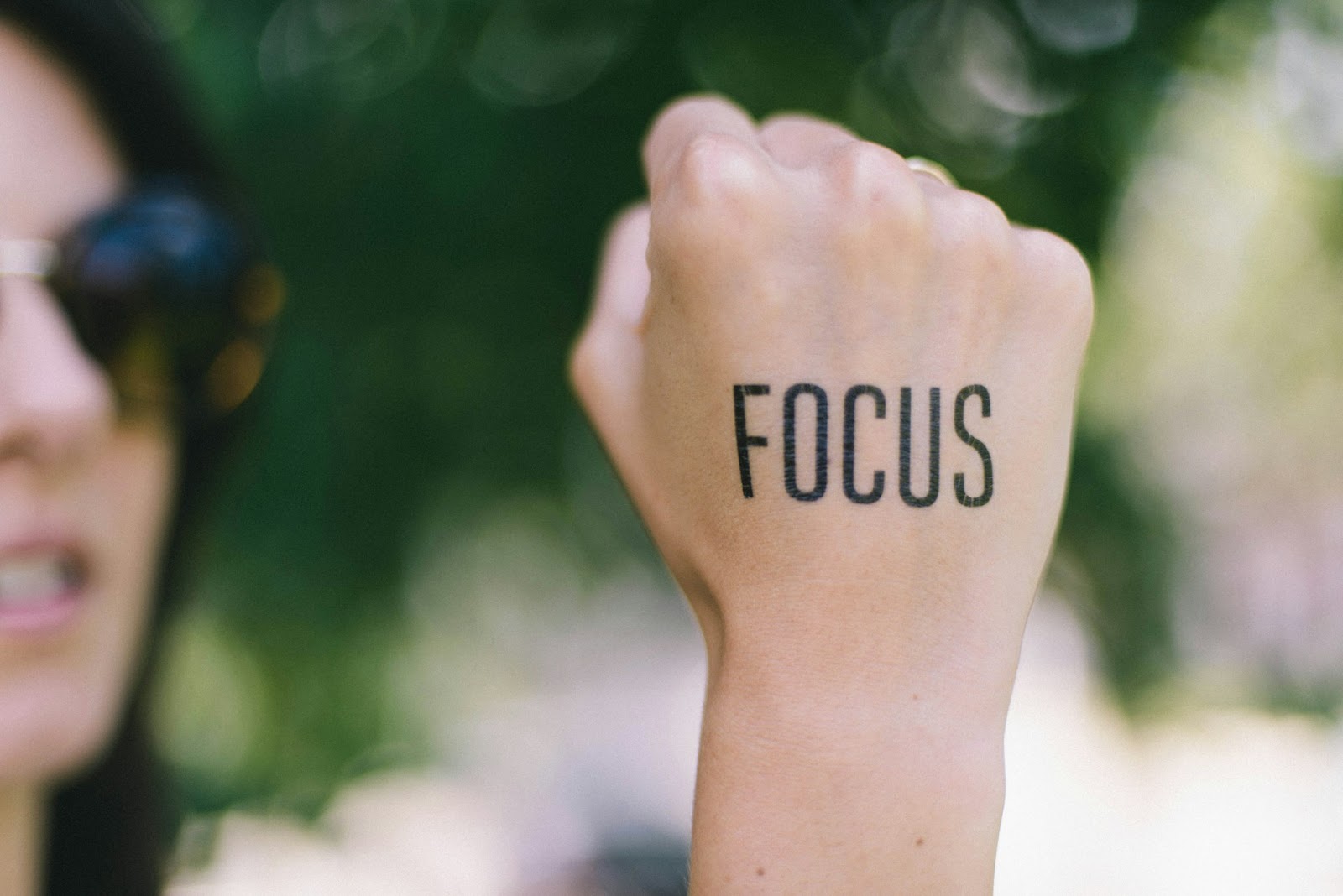
Alright, so you’re struggling to stay focused and distractions keep pulling you away from what really matters. You’re not alone—staying focused is harder than ever in a world filled with constant notifications, social media, and never-ending tasks. But before you get too frustrated, let’s break down some practical tips for maximizing concentration and avoiding distractions so you can finally crush those to-do lists.
Why Focus Matters
Let’s get one thing straight: focus is not just about getting more work done—it’s about getting the right work done. When you’re constantly distracted, your productivity tanks, and your best ideas never see the light of day. Being able to concentrate is essential for doing high-quality work, whether you’re studying, working, or pursuing a personal project. The bottom line? Mastering focus is key to success, both in your career and personal life.
The Appeal of Multitasking
Multitasking sounds like the answer to all your problems, right? Wrong. It might feel like you’re getting more done, but studies show that switching between tasks reduces efficiency and increases errors. Here’s why people fall into the multitasking trap:
- Sense of accomplishment: Tackling several things at once gives you the illusion that you’re being super productive.
- Modern workplace pressure: With deadlines looming and meetings piling up, multitasking feels like the only option.
- Addictive distractions: A quick check of your phone or email feels harmless, but those little interruptions add up.
The Downside of Constant Distractions
But here’s the catch: distractions aren’t just a minor inconvenience—they’re productivity killers. Every time you get pulled away from your work, it takes time to refocus. Let’s get into the nitty-gritty of how you can avoid these distractions and stay on track.
Tips for Staying Focused
1. Create a Distraction-Free Zone
Let’s face it: your environment plays a huge role in your ability to concentrate. A cluttered, noisy, or chaotic space will constantly pull your attention away from the task at hand.
- Declutter your workspace: A clean desk equals a clear mind. Remove unnecessary items that might tempt you away from your work.
- Noise control: Use noise-canceling headphones or play white noise or instrumental music to drown out background sounds. If you work from home, set boundaries with others in your household.
- Phone-free zone: Put your phone on “Do Not Disturb” or leave it in another room. Even a quick glance at notifications can pull you out of the zone.
2. Use Time Blocking
Time blocking is a powerful tool for staying focused. By scheduling specific time slots for tasks, you’re more likely to concentrate because you know you’ve allotted dedicated time to get it done.
- Plan your day in blocks: Break your day into focused work sessions—say, 90-minute intervals—followed by short breaks. This helps you tackle big tasks in smaller, more manageable chunks.
- Group similar tasks: If you have several tasks that require similar thinking (like answering emails or brainstorming), batch them together so you’re not constantly switching gears.
3. Prioritize Your Tasks
It’s easy to get overwhelmed when you have too much on your plate. Prioritizing is essential for maintaining focus on what really matters.
- Use the Eisenhower Matrix: Sort tasks into four categories: urgent and important, important but not urgent, urgent but not important, and neither urgent nor important. Focus on the first category and push back on the rest.
- Limit your to-do list: Don’t overload your list with 20 tasks—aim for three to five key things to accomplish each day. This makes it easier to focus and gives you a sense of accomplishment.
4. Take Strategic Breaks
You might think you’re maximizing productivity by working non-stop, but it’s a myth. Your brain needs periodic breaks to recharge.
- Pomodoro Technique: This classic technique involves working for 25 minutes, then taking a 5-minute break. After four sessions, take a longer break of 15-30 minutes.
- Move your body: Get up, stretch, or go for a short walk. Physical activity can boost concentration and refresh your mind.
- Mindfulness breaks: Take a moment to focus on your breath or practice mindfulness. It helps reset your focus and reduces stress.
5. Cut Out Digital Distractions
In today’s digital world, it’s way too easy to get sidetracked by a ping on your phone or a tempting YouTube video.
- Use website blockers: Apps like Freedom or Cold Turkey can block distracting websites during work hours.
- Batch-check emails and messages: Instead of checking emails constantly, set specific times during the day to check and respond to messages. This keeps you focused on your tasks rather than other people’s agendas.
- Disable notifications: Turn off non-essential notifications on your phone, computer, and apps. You don’t need to know about every social media like or app update as it happens.
6. Optimize Your Energy Levels
When you’re tired or burnt out, focus is nearly impossible. You need to work with your energy levels, not against them.
- Work during peak energy hours: Identify when you’re most alert during the day—whether that’s in the morning, afternoon, or evening—and schedule your most important work during those times.
- Stay hydrated and eat well: Low energy can be a result of dehydration or poor nutrition. Keep water nearby and fuel up on brain-boosting foods like nuts, fruits, and whole grains.
- Get enough sleep: Sleep deprivation wreaks havoc on your focus and productivity. Aim for 7-9 hours of quality sleep to stay sharp throughout the day.
Real-Life Implications of Poor Focus
Think about it: every time you lose focus, it’s like hitting the reset button on your productivity. You might be able to recover, but it’s a slow process, and the quality of your work suffers. If distractions take over, you risk missing deadlines, producing subpar work, and ultimately feeling unfulfilled at the end of the day. Over time, this can lead to burnout, anxiety, and a constant feeling of playing catch-up.
What to Look for in Focus Tools
If you’re serious about boosting your concentration, here are a few tools that can help:
- Focus apps: Tools like Forest or Focus@Will can help you stay focused by gamifying the process or playing concentration-enhancing music.
- Time management software: Apps like Toggl can help you track how much time you’re spending on tasks, allowing you to better plan your day.
- Accountability partners: Sometimes, having someone check in with you can keep you accountable and on track.
Why Long-Term Focus Is Key
At the end of the day, maintaining focus isn’t just about getting through your tasks—it’s about building the long-term discipline to achieve your bigger goals. Whether it’s advancing in your career, pursuing personal projects, or simply improving the quality of your day-to-day life, focus plays a huge role.
The benefits of mastering concentration are clear:
- Improved productivity: You’ll get more done in less time, leaving you with more space for creative or leisure activities.
- Better work quality: Focused work leads to higher-quality output, which boosts your satisfaction and success.
- Less stress: When you’re in control of your focus, you’ll feel more on top of your workload, reducing the anxiety that comes with falling behind.
Conclusion
Staying focused in today’s world can feel like an uphill battle, but it’s not impossible. Create a distraction-free environment, use time-blocking strategies, and prioritize tasks. Take breaks, cut out digital noise, and work with your energy levels instead of against them. The key is to set yourself up for success by recognizing and managing the distractions that come your way.
In the long run, the ability to stay focused will not only boost your productivity but also enhance the quality of your work—and your life. It’s all about mastering the art of concentration and giving yourself the best possible chance to succeed.

